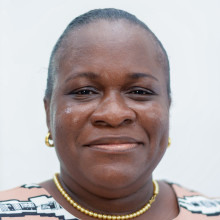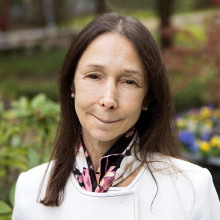
Academia Roundtable
In the eye of the storm: How research and data can help solve the climate-related urban Housing crisis
Summary
Urban areas worldwide face interconnected systemic crises, including the housing crisis and climate emergency, which are global common denominators, uniting north and south. Enhancing infrastructure and housing contributes to a substantial ecological footprint through increased emissions and urban expansion. Additionally, climate change disproportionately affects vulnerable communities and regions. While climate change is the most urgent challenge facing the world today, the global housing crisis is a key priority that aligns closely with UN-Habitat's mandate. UN-Habitat is uniquely positioned to address these interlinked challenges by promoting access to adequate housing, land and basic services, and through the transformation of informal settlements and slums to enhance resilience and reduce their environmental footprint.
This roundtable will explore how research and data can inform evidence-based strategies to effectively tackle pressing issues such as housing affordability, access to basic services and environmental sustainability. Data are needed to assess progress, provide foresights and inform future investments and decisions to address urban issues. Through interdisciplinary collaboration, knowledge co-production and cross-sector collaboration, research can generate innovative solutions that inform urban planning and policy, ensuring that interventions are tailored to the specific needs of diverse communities.
Within this context, the academia roundtable will discuss the strategies and collaborative efforts needed to enhance the body of research and data to tackle these complex challenges. Academia and research institutes have a crucial role in addressing these crises at all scales, contributing to the implementation of the New Urban Agenda and the achievement of the 2030 Agenda. The session will reflect on the key findings from major reports and events, including the 2023 SDG 11 synthesis report, The World Cities Report (WCR) 2024, the Intergovernmental Panel on Climate Change (IPCC)'s Special Report on Climate Change and Cities, the 2024 Innovate4Cities Conference (I4C24) (Montréal, 10-12 September 2024) and the International Conference on Collective Housing: Let People be the Solution (Thailand, 1-4 July 2024).
Linkage with WUF12 dialogues
The academia roundtable directly addresses key themes of the forum, particularly Dialogue 1, "Housing our future," and Dialogue 2, "Cities and the climate crisis." Through an interdisciplinary and inter-regional lens, the roundtable contributes to a holistic understanding of urban challenges, with the aim of fostering collaboration to co-create resilient and inclusive urban futures, which aligns with Dialogue 3, "Stronger together."
Objectives
- Generate practical recommendations on strategic directions to address priority research and data gaps in the context of multiple crises, particularly housing and climate challenges.
- Amplify academia's role in promoting sustainable urbanization and enhance collaboration across sectors, regions and disciplines.
- Raise awareness about Habitat UNI Steering Committee Elections and the new UN-Habitat University and Research Partnerships Framework.
Expected outcomes and impact of the session
- This roundtable will enhance collaboration between UN-Habitat, universities and research institutes to address the data and research gaps.
- The event will generate practical recommendations as inputs for the WUF 12 outcome documents on how academia and research institutes, in collaboration with other sectors, can address urban data and research gaps on the context of multiple crises.
- The roundtable will increase awareness about UN-Habitat, universities, research institutes and other key stakeholders through the revitalization of Habitat UNI Network and the launch of UN-Habitat University and Research Partnerships Framework.
Guiding questions
- Based on the World Cities Report (WCR) 2024, the Intergovernmental Panel on Climate Change (IPCC)'s Special Report on Climate Change and Cities, and the 2024 Innovate4Cities Conference (I4C24), what are the critical research and data gaps in housing, land use and access to urban basic services? What are some recommendations for strategic directions to address these gaps?
- Drawing from the International Conference on Collective Housing: Let People be the Solution, what are the key strategic directions to address research and data gaps in the context of the global housing crisis?
- What strategies and collaborative efforts can enhance the body of data and research on the urban agenda, specifically focusing on housing, from urban planning, social equity and governance perspectives?
- What are some exemplary academia-policy-community collaborations that have effectively addressed data and research gaps? Why did they work well and how can these practices be scaled?
- How can this network evolve into a global coalition to generate a more robust body of research that could be used as a public good to support member states, subnational governments and all parties interested in advancing the New Urban Agenda?

















 Streaming on UN WEB TV
Streaming on UN WEB TV